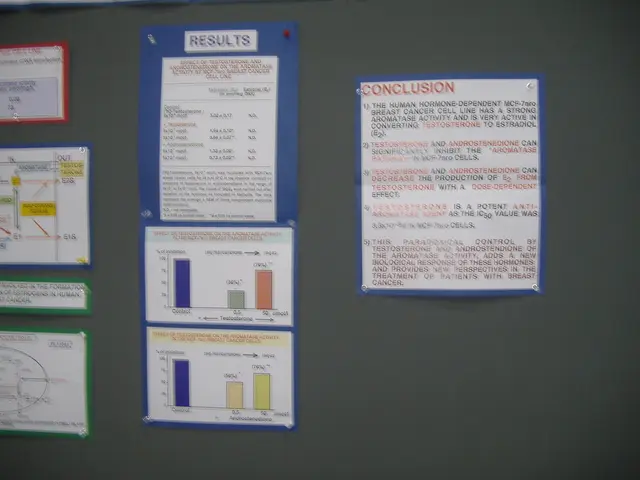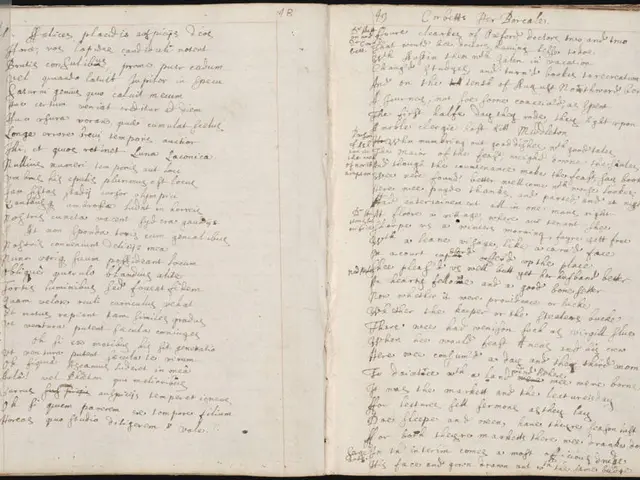Packaging Tax in Controversy: Small Businesses Voice Concerns and Propose Alternative Solutions
Consultation by the Commission on the proposed directive aimed at safeguarding workers from chemical hazards.
A packaging tax, aimed at reducing non-recycled plastic waste, has been met with opposition in various sectors, particularly among small and medium-sized businesses in the food trade. The debate over this tax is currently being discussed in several municipalities in North Rhine-Westphalia, with the Association of Craftsmen Niederrhein leading the charge against it.
Arguments Against the Packaging Tax
The primary concerns surrounding the packaging tax revolve around cost implications, operational challenges, and potential economic impact. Implementing the tax could significantly increase costs for businesses, potentially leading to higher prices for consumers. Small and medium-sized enterprises (SMEs) might struggle to absorb these additional costs, impacting their competitiveness.
The complexity of implementing changes to packaging might be burdensome for SMEs, which often have limited resources and infrastructure to adapt to new regulations quickly. There is concern that such taxes could negatively impact the economy, especially during times of economic uncertainty, as they might deter investment and reduce consumer spending.
Impact on Small and Medium-Sized Businesses
For SMEs in the food trade, the packaging tax could exacerbate existing challenges such as managing supply chains and maintaining profit margins. The cost of compliance and potential penalties for non-compliance could be particularly daunting for these businesses, which often operate on slim profit margins.
Alternative Solutions
The Association of Craftsmen Niederrhein and similar organizations propose alternative solutions to reduce packaging waste without imposing taxes. One such solution is Extended Producer Responsibility (EPR), which requires manufacturers to bear the cost of managing the waste generated by their products. This model encourages companies to design sustainable packaging without imposing a direct tax.
Another suggested approach is education and awareness campaigns, aimed at encouraging voluntary changes in consumer behavior and promoting sustainable practices. Offering incentives for businesses that adopt sustainable packaging practices could also encourage innovation and adoption without the need for taxes.
The Association of Craftsmen Niederrhein also advocates for local environmental partnerships as an alternative to the packaging tax. These partnerships could introduce sustainable packaging solutions voluntarily, without adding bureaucratic overload.
The Case of Tübingen
A study on the packaging tax in Tübingen suggests that the tax may not be an effective solution for reducing waste. Despite the implementation of the tax, the waste volume has not significantly decreased. This raises questions about the tax's efficiency and the need for alternative solutions.
Call to Action
The Association of Craftsmen Niederrhein invites citizens, businesses, and decision-makers to support the petition against the packaging tax, which can be found online at www.no-to-packaging-tax.de. Thomas Gütgens, a prominent figure in the association, emphasizes that this tax negatively impacts small and medium-sized craft businesses.
As the debate continues, it is crucial to consider the potential impacts on businesses and the economy, and to explore alternative solutions that promote sustainability without imposing undue burdens.
The packaging tax, currently under debate in several municipalities, is causing concern among small and medium-sized businesses in the food trade, particularly those in the retail industry, as it may increase costs and operational challenges, potentially affecting their competitiveness and forcing them to pass on additional costs to consumers.
Alternative solutions, such as Extended Producer Responsibility (EPR) and education and awareness campaigns, are being proposed by organizations like the Association of Craftsmen Niederrhein as a way to reduce packaging waste without imposing a tax, allowing businesses to adopt sustainable practices voluntarily.




